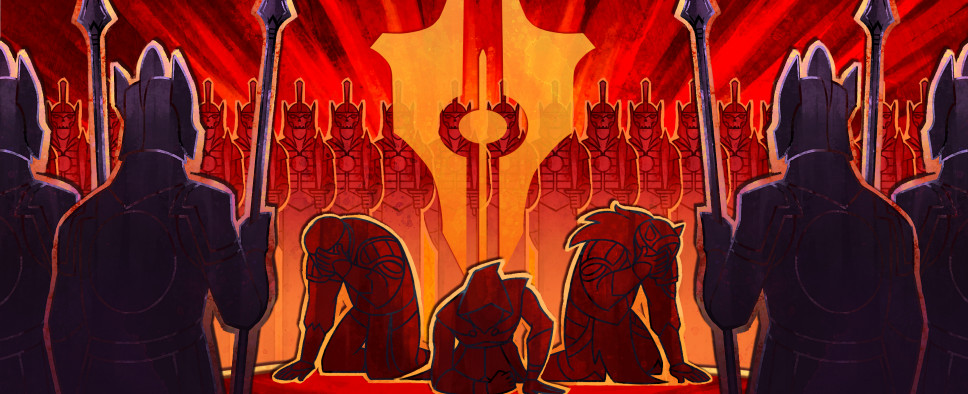Tyranny Developer Diary #2: Character Progression
-
Category: News ArchiveHits: 1762

The second developer diary for Tyranny, Paradox Interactive and Obsidian Entertainment's upcoming Real Time with Pause RPG set in a world where "Evil Won", focuses on one of the basic gameplay systems of the title, character progression. It's penned by game director Brian Heins, who explains how the game's skill-based classless progression works. An excerpt:
Skills in Tyranny are grouped into three broad categories: Weapons, Support, and Magic. Weapon skills determine how accurate your character is when wielding weapons of that type. Support skills determine how good you are at avoiding being hit in combat, as well as how nimble, sneaky, or knowledgeable your character is. Magic skills determine how precisely your character can draw various magical sigils and control the forces they evoke.
...
I wanted skills to increase as you use them, rather than spending skill points at level up. This meant a fundamental change to how character progression worked. In Eternity, characters gain experience as they complete quests and objectives. Individual combat encounters or conversations had no effect on level, unless they advanced a quest.
With the decision to increase skills by use, I needed skill gains to contribute towards character level. Otherwise you could theoretically have a character with a hundred ranks in a skill, but still technically considered '˜level 1'. So, in Tyranny as you use skills they gain experience. When they gain enough experience, they increase their skill rank. When a skill increases in rank, your character gains experience towards their next level.
A benefit of this is that it makes even optional combat encounters rewarding for the player. This change could have made conversations less rewarding, as players would need to fight in order to level up their characters. To resolve this, we added functionality to allow players to level up their skills in conversations. Player choices that are gated by skill requirements will add experience to those skills when they are used. Additionally, if you use a skill to intimidate an encounter into fleeing, we grant skill experience to the party equivalent to what you would gain if you fought them. It can't be exact, as there are too many decisions that players can make during combat to replicate it exactly.

